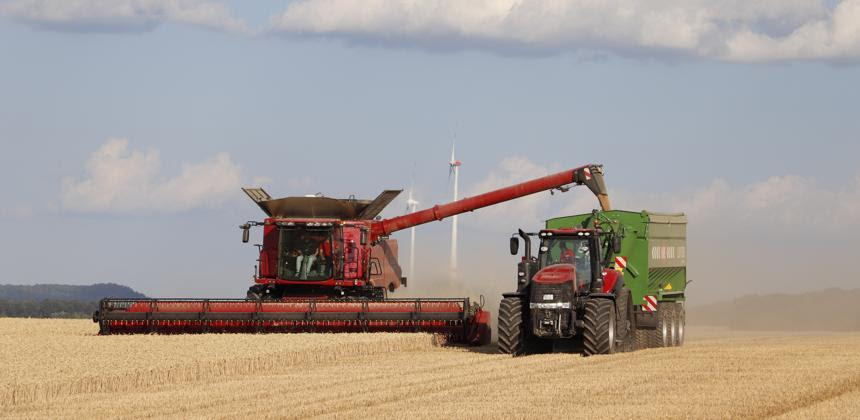Germany’s 2022 grain harvest rose nearly 2% year-on-year to 43 million tons, despite the ongoing drought, according to provisional figures released Tuesday, Aug. 23, by the German Farmers Association (DBV).
Due to climate change effects, crop volumes in 2022 remained “significantly below the average” of 45.6 million tons recorded from 2014 to 2021, DBV said in a report. Autumn crops such as corn, potatoes and beets have “suffered massively” in heat-affected regions, DBV President Joachim Rukwied said. Considerable yield losses are expected for these crops, he added.
Fields in Germany have been hit by a combination of above-average temperatures, hours of sunshine, and low precipitation since May, the state weather service (DWD) reported earlier this month. This has caused “severe drying” of soils. “The prolonged drought in many parts of the country shows once again that farmers are feeling the effects of climate change very directly,” Rukwied said.
The European Union (EU) plans to reduce the use of chemical pesticides by 50 percent by 2030. In addition, rules on managing these pesticides must be tightened to ensure more sustainable agri-food systems by 2030.
According to official figures, food prices in Europe’s largest economy are rising faster than inflation, recording a 14.8% year-on-year increase in July. In addition, costs of flour and grain products grew by 34%, amid the Russian-Ukrainian conflict affecting global supplies.



Comment here